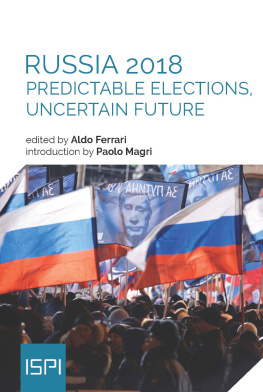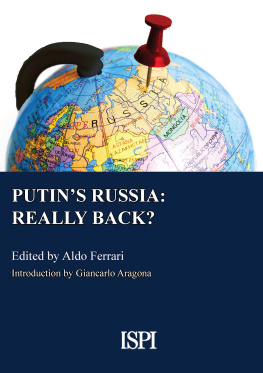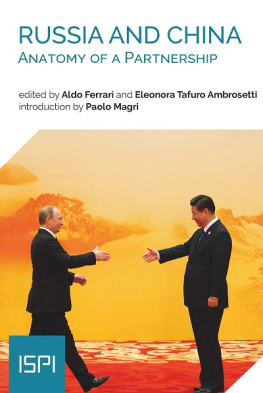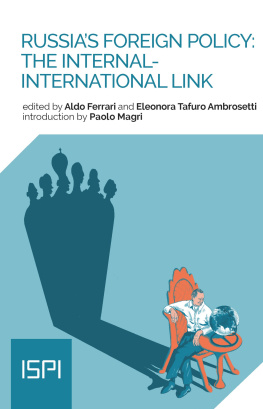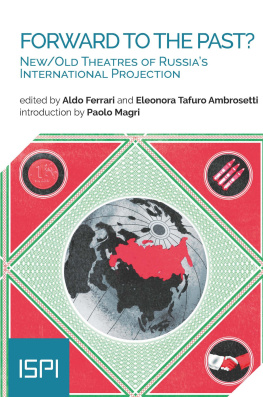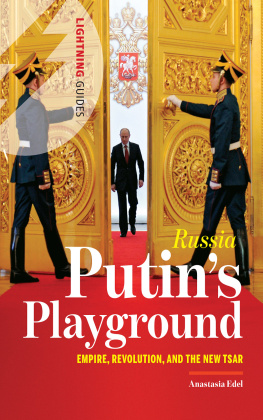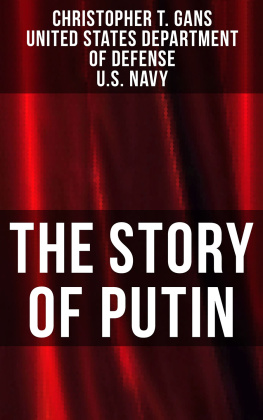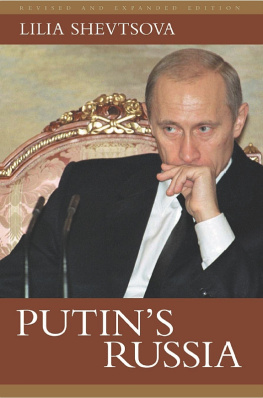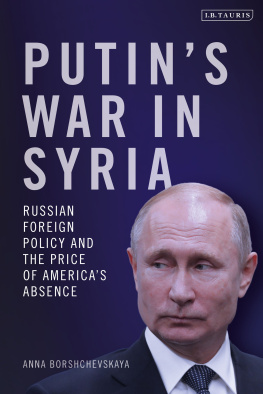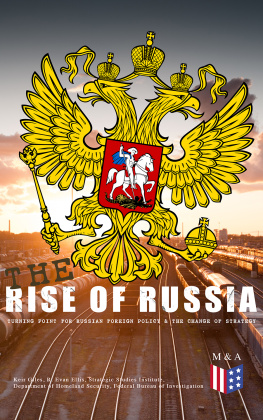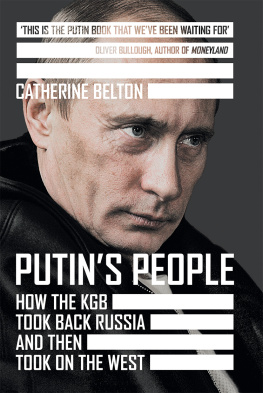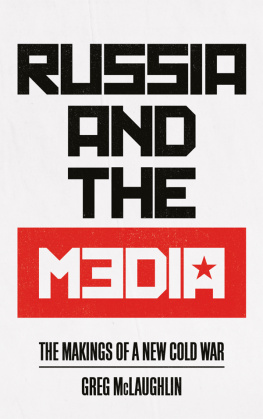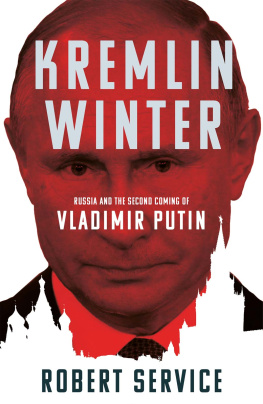Introduction
For one reason or another, Russia has been under international scrutiny since at least 2013. Be it for the annexation of Crimea in 2014 and the subsequent international crisis, Russias role in Syria, or the alleged interference in the US presidential election, the international community has been increasingly directing its attention towards Russia and its leader. In 2018, two Russia-related events are to further attract the worlds interest: the presidential elections taking place on March 18, and the World Cup, which will kick off in June. While the outcomes of the latter are still uncertain, nobody wonders who is going to win the elections, with President Vladimir Putin ready to serve another six-year-term.
If the outcome seems so ineluctable, why should these elections be worthy of notice? In fact, they bear important consequences for Russias domestic and foreign policy alike. Domestically, the expected high rate of abstention might be a problem for Putins regime, which is often labelled an electoral authoritarianism or illiberal democracy, and to which formal demonstrations of popular consent matter. Even if Putins approval rates have been remarkably high throughout the last years, a low electoral turnout would undermine the principle of legitimacy that even authoritarian regimes need or want to boast of. In fact, Putin worries about the prospect of repeating the scenario of 2016; back then, the ruling party, United Russia, won a comfortable majority in the parliamentary elections, but voter turnout hit an all-time low: less than 50% of Russians cast their vote, even less in major cities (only 28% in Moscow). While Putin is trying to mobilise the electorate through a campaign focusing on stability and social policies addressing growing inequality highly sensitive topics for a population deeply hit by the international sanctions the lack of a credible and attractive alternative to Putin and the perceived likelihood of electoral fraud may keep the participation rate low.
When it comes to Russias foreign policy, the main puzzle here is what the post-election new old Russia will look like and what role it will play in the international arena. One fundamental question stands out among many: will Putin continue to challenge the Western-championed liberal order or will he seek reconciliation with the West? To answer this question, a closer look is required, not only in terms of the outcome of the elections but also in light of the dynamics at play before and after the electoral competition. It goes without saying that playing the nationalist card to boost popular consent may not suffice at a time when economic resources are shrinking. As highlighted in the recent ISPI Report Putins Russia: Really Back? , crucial variables such as the renewal of international sanctions or global oil prices will take their toll on the Russian economy and may further reduce Putins ability to both cement his power at home and pursue his objectives abroad.
The authors of this Report paint a clear picture of 2018 Russia. A picture that is not a static one; on the opposite, not only does the Report give a snapshot of Russias political system, its society, and its main domestic and international challenges, but it also traces their evolution while pointing at future scenarios.
For a start, Alessandro Vitale analyses Putins role and position within the current Russian political system. The author describes how the Russian president managed to ensure, Soviet-style, the personification and indivisibility of power; at the same time, his regime sacrificed an independent and powerful civil society on the altar of order and institutional stability. What are the prospects for future institutional change? Even if combining economic regeneration and respect of constitutional rights with a strong state might prove increasingly problematic in the future, Russians keep considering the continuation of Putins rule as the best option to keep order at home while regaining great-power status abroad. Since Russian domestic political structures largely depend on foreign policy priorities, Vitale claims that this situation is likely to endure in the short-to-medium term.
In the second chapter, Aldo Ferrari looks at the increasingly conservative attitudes that Putins political discourse shares with Russian society. Is Russia the Land of a Conservative Society? The enactment of several conservative bills just to mention a couple, the anti-gay propaganda laws or the decriminalisation of domestic violence seems to suggest so. Conservatism reverberates through Russias international image: Moscow has indeed become a kind of conservative pole as opposed to the most recent Western social and legal developments. As a matter of fact, it seems that Russia has been increasingly waging a normative war against the West and its liberal values. Therefore, to fully understand the evolution in relations between Russia and the West, Ferrari analyses the emergence of their growing rift in terms of values. Nevertheless, Ferrari argues that this picture of a rapidly expanding conservatism in Russias society should not be overestimated; a quick look at key indicators, such as abortion or divorce rates, suggests that Russian society is not that different from those of secular Western Europe.
Richard Sakwas analysis of the nature and role of political opposition in Russia follows suit. The author offers an overview of both the systemic and non-systemic opponents to Putins regime. The former play by the normative rules of regime politics, and in certain respects reinforce the administrative aspects of Russias managed democracy. The four parties that are currently represented in the Russian Duma are indeed the usual suspects, as they have enjoyed unbroken representation at the national parliamentary level since their foundation. Non-systemic opposition, on the other hand, includes those parties and groups not represented at the national level, such as the Yabloko social liberal party, but also spoiler parties that is, parties with names similar to existing parties to draw away their votes and threats to stability such as the Radical Muslim mobilisation and leftist nationalism. The author argues that the regime is claiming to introduce elements of competition into a fundamentally uncompetitive system to boost turnout, while only allowing mildly unconventional candidates not presenting a serious challenge to Putin, and barring, for example, candidates such as the lawyer and anti-corruption activist Alexey Navalny, the only independent and charismatic face of Russias opposition.
In his chapter, Alexey Malashenko delves into Russias unique relationship with Islam. His analysis starts with the figures defining the presence of Muslims in Russia: in 2017, there were some 17 million Muslims in the country, i.e. more than 11% of its population, although some politicians and state officials, including Putin, refer to much higher figures (up to 25 million). Muslim migrants from abroad (especially Central Asia) have become a part of the Russian Islamic community, and they abide more and more by Islamic rules (for instance, in terms of alcohol consumption). Some regions, mainly in the North Caucasus, are undergoing a process of Islamisation or even Shariasation. These factors cannot but shape the Russian governments policy toward Islam and Muslims, but also Russias foreign policy goals and concerns. Yet the author maintains that the situation in the Russian Muslim community is relatively peaceful. Russian Muslims are politically passive and loyal to the authorities, even with regard to Russias involvement in the Syrian conflict. Religious extremism and terrorism, while still present, decreased compared to previous years, as did the influence of and interest in ISIS.

